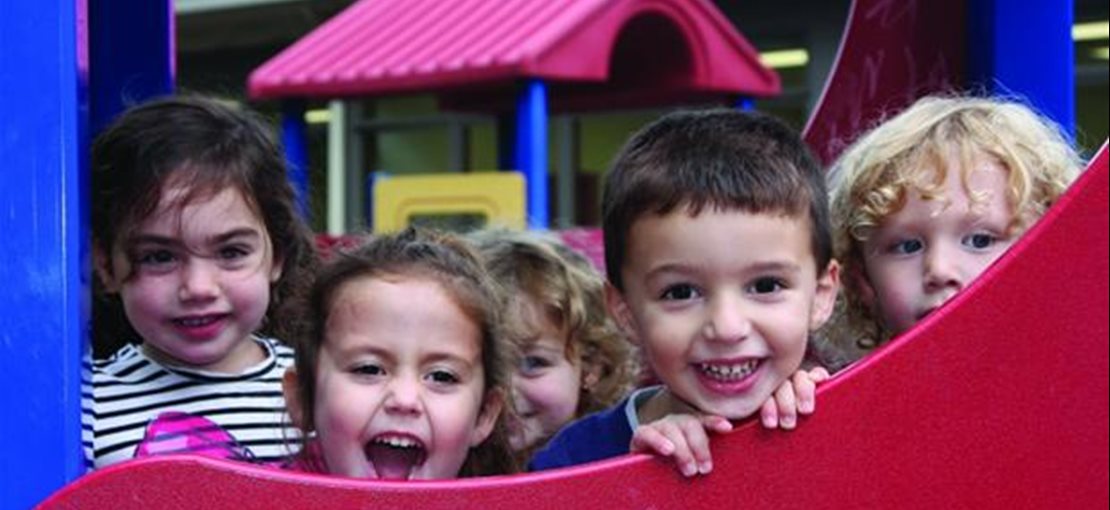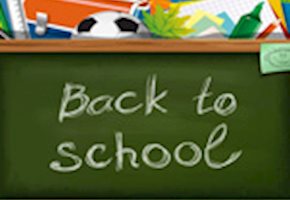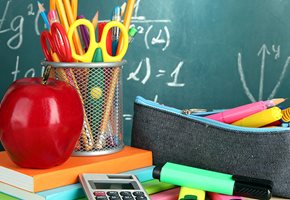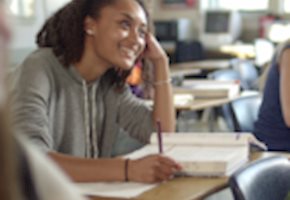As an Early Childhood Educator, I regularly meet with prospective parents who are shopping for good preschools for their children. It is a given that parents want what is best for their children so they take preschool selection seriously.
Most of the parents I meet on our school tours come well prepared with questions which typically focus on staff-to-student ratios, class size, specialty instruction offered (swim, art, music, etc.) and the schedules of all available classes.
Oddly, very FEW parents ask about the school’s learning philosophy.
But what MOST do ask is “Will my child be prepared for kindergarten?”
When I ask the question, “What does preparedness for kindergarten mean to you?” The answer I get the most is “that he/she will be reading before entering kindergarten.”
Our child has not even set foot in a two-year-old preschool program, and lo and behold, we are already wondering about his or her kindergarten readiness and beyond! When did this race to college begin at the age of two? In the era of core curriculum standards, “No Child Left Behind” and academic pushdown, it is no wonder that the perception amongst parents is that children must begin this race very early in order to succeed. In reality, nothing could be further from the truth or more detrimental to learning.
Let’s dispel a common misconception – children do not need to have all of their letter sound connections or know ten sight words or be able to write their name before entering kindergarten. Reading and writing are skills that are taught during the kindergarten year.
An interesting but little-known fact is that the ages at which children reach developmental milestones have not changed in the last 100 years. It is developmentally appropriate for five- and six-year-olds to exhibit reading readiness. And reading readiness comprises only one-fifth of the developmentally appropriate skills that early learning educators must focus on in the classroom. Any educator who understands all of the important skills necessary to foster a love of learning in a child knows this. But we live in a world where performance has replaced learning.
Outcomes and standard based assessments have become the predictors of perceived academic success. Building the foundation for critical thinking, exploring and questioning – true learning – have taken a back seat.
My big question is “how do we bridge the gap between what we know to be true about child development and what society and many parents believe to be the ‘ticket’ to academic excellence?”
I think we need to begin by understanding what kindergarten readiness really is. To do a reality check from a parent’s perspective, I Googled “kindergarten readiness” and within seconds, I could easily access checklists of recommended skills children should have when entering kindergarten; I could even download a kindergarten readiness app!
I was encouraged to learn that much of what is out there for parents to review is appropriate and considers social and emotional readiness as equally important as cognitive readiness. That is the good news. Unfortunately, there is still a disconnect because parents must respond to the increased academic demands on their children after kindergarten.
Based on my experience, I am going to outline some tips that may be helpful in beginning to unpack and understand all of this.
No one single factor determines whether a child is ready to start school. In general, a child’s maturity level, physical, social and cognitive development, his/her ability to think logically, speak clearly and interact well with other children and adults are all of critical importance to potential success in school.
In reality, most four-year-olds have not yet reached full competence in all of these areas. Many children who are advanced cognitively may be somewhat emotionally immature, or a child who is physically capable, may have language delays or pragmatic speech issues. However, most four-year-olds ARE ready for the next step – kindergarten.
Here are three examples from a kindergarten readiness list that I found. I agree with the author that these skills are necessary for a child to enter kindergarten with ease. I have added my commentary for consideration in italics.
- Can my child listen to instructions and then follow them? Children need these skills to function in class, to keep up with the teacher and with their peers.
It is crucial for children to develop good communication skills so that they may listen and interact. In early learning, educators focus on helping children become good listeners and understand their place in the classroom community. Part of this learning includes taking turns, acknowledging another’s opinion and learning to work together with other classmates. - Does my child show an interest in books? Does he/she try to "read" a book by telling a story based on the pictures? This is a sign that his/her language development is on a par with other kindergartners and that he/she is ready to start learning how to read.
The key is “showing interest” in books. Being read to, pretending, making predictions and decoding using pictures is considered pre-literacy. When entering kindergarten, the emphasis should be on being ready to start to learn to read, not the mastery of reading itself. - Does he/she get along well with other kids? Does he share and know how to take turns? He/she will be interacting with other children all day, so your child's social skills are particularly important for success in school.
Social skills include taking risks, making new friends and learning how to navigate the classroom community and get along with others.
And the list goes on. For more information on kindergarten readiness, just Google it! You can find checklists, suggested games and activities to practice necessary skills, apps and a great deal of information published to help parents.
But first, I would suggest understanding the developmental signs of readiness for your child. Knowing that cognitive ability is only a piece of the puzzle, and there are other skills equally as important can help take the stress and uneasiness out of the kindergarten picture. Helping your child easily transition really doesn’t take too much effort; your son or daughter already has what it takes!
Robin Brous is currently the Director of the Brody Family Early Learning Center at the JCC of Central New Jersey in Scotch Plains. Robin’s background is in education and camping. She holds a Masters Degree in Educational Administration, a New Jersey Principal certification and elementary teaching certification. Robin has been at the JCC for over 20 years. She began in the JCC preschool, directed Camp Yachad for 13 years and currently oversees all of JCC’s Early Childhood Services including infant care, preschool, kindergarten and after care, in addition to serving as Associate Executive Director.
JCC of Central New Jersey in Scotch Plains
1391 Martine Ave, Scotch Plains, NJ 07076
908-889-8800
http://www.jccnj.org






Add A Comment
Thank you for your comment.
Sorry! There was a problem with your comment submission. Please try again.
Comment
Allowed HTML: <b>, <i>, <u>, <a>
Comments
Thank you for your comment.
Sorry! There was a problem with your comment submission. Please try again.
Thank you for your comment.
Sorry! There was a problem with your comment submission. Please try again.